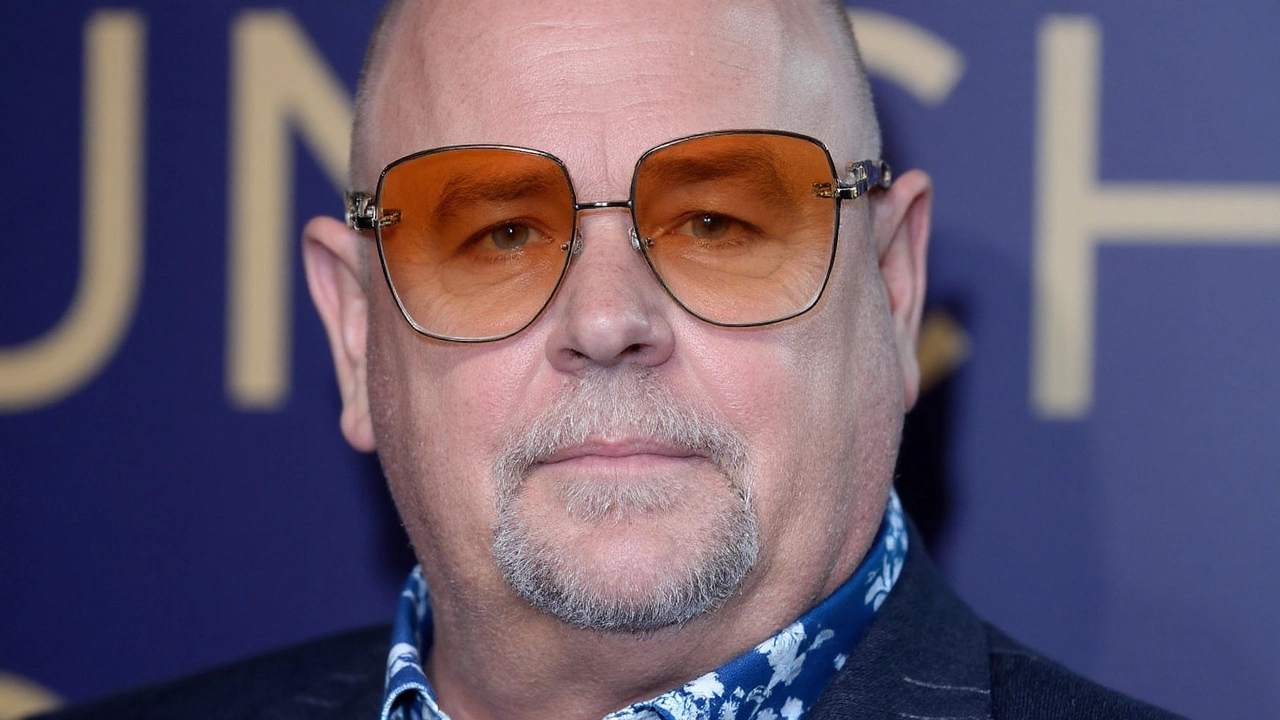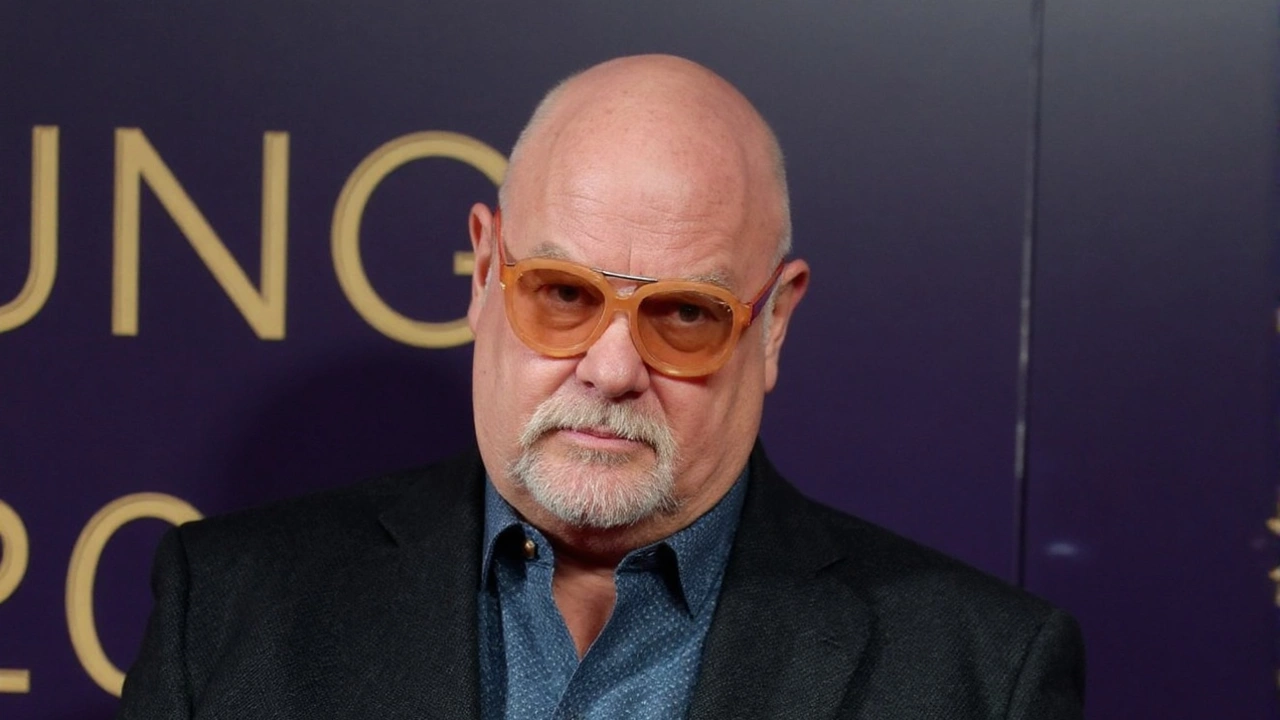'Au revoir, not goodbye': James Whale signs off from hospice
From a hospice bed, with his wife Nadine Lamont-Brown close by, James Whale recorded the last broadcast of a career that spanned more than half a century. TalkTV aired the final episode on Friday, August 1, 2025. Three days later, on Monday, August 4, the 74-year-old died—still, in spirit, on air until the end.
The tone was intimate, not theatrical. Whale asked Nadine, “We’ve had a good time together, haven’t we?” She answered, “The best.” He turned to his listeners one last time: a simple thank you, a hope that the show “helps in some way,” and a line that landed with the weight of a lifetime in broadcasting: “Au revoir, not goodbye.”
He had told his audience in May that he was stopping treatment, saying he’d reached “the end of my cancer journey.” Diagnosed with stage-four kidney cancer in 2020, he had been upfront about the setbacks and the small wins. The decision to keep broadcasting, even as his health declined, matched the way he had always done talk radio—direct, unguarded, and with no interest in staging an exit.
Listeners had grown used to that frankness. They’d heard him grieve his first wife, Melinda, who died of lung cancer in 2018. They’d heard him find love again and marry Nadine. And in that final episode, they heard the same mix that ran through his shows for decades: gratitude, humor, and the urge to keep the conversation going.
TalkTV and News UK paid tribute, calling him a legend whose voice cut through the noise of late-night radio. Colleagues described a mentor who didn’t do small talk on or off the mic. The channel’s statement put it plainly: after 50 years on air, he’ll be missed by the TALK family and far beyond.

A career that changed late-night radio
Whale’s on-air style—brisk, combative, and oddly warm—was built for the late shift. He thrived on calls that drifted from politics to the mundane, then snapped back to a sharp question. He picked fights, kept order, and left space for voices you wouldn’t hear in daytime slots. It wasn’t always comfortable, and that was the point.
He moved with the industry as it changed. He made the jump from radio to television and back, then embraced digital platforms and podcasting when legacy formats started to splinter. The final show, recorded in a hospice and shared widely, felt like a full circle—old-school talk radio meeting a new audience, still guided by the same unmistakable delivery.
Key moments from a five-decade run:
- Built his name in late-night phone-ins, where his pace and pushback set him apart.
- Took the format to TV in the late 1980s and early 1990s, blurring lines between radio and late-night television.
- Left talkSPORT in 2008 after an impartiality breach in the London mayoral race, a flashpoint that didn’t dim his appeal with loyal listeners.
- Returned to national prominence with the relaunch of talkRADIO in 2016, then became a mainstay as TalkTV grew its audience across radio and television.
- Received an MBE in 2024 for services to broadcasting and cancer charity work, a nod to both his career and years of advocacy.
Whale had been open about cancer long before his 2020 stage-four diagnosis. He raised money, hosted events, and used airtime to push for earlier detection and better support. The charity work wasn’t a sideline; it was part of the show. He knew listeners by name, and he understood how illness changes families because his own did.
Personal loss shaped his later years. After Melinda’s death in 2018, he talked about grief without varnish. He remarried, crediting Nadine with keeping him grounded and, in his words, “in the fight.” He is survived by Nadine and his two sons, James and Peter, who have long been part of how he spoke about home, work, and responsibility.
What made him different wasn’t just the bluster. It was the ability to pivot from a fiery exchange to a moment of care, to let a caller finish a thought, to hold silence when it mattered. Fans and critics agreed on one thing: you always knew where you stood with him. If he challenged you, he expected you to challenge back.
After he stopped treatment in May, he didn’t orchestrate a grand farewell. He booked shows, did the work, and kept his routines until his strength ran out. The final recording captured that stubborn professionalism—no monologue about legacy, no list of achievements, just a thank you and a promise to leave the line open.
Tributes have poured in from colleagues, rivals, and generations of listeners who found late-night companionship in his voice. Producers recalled a host who was exacting in the prep and improvisational in the moment. Presenters who followed him into the slot acknowledged they borrowed the pace, the quick switch from heat to heart, the confidence to let a difficult call breathe.
TalkTV’s schedules in the days after his death featured memories and clips that reminded viewers just how much ground he covered. Politics, culture, health, sport, the daily grind—if it was on people’s minds, it was on his. He knew the power of a blunt question and the value of a kind sign-off.
“Au revoir, not goodbye,” was classic Whale: a parting shot that avoided sentimentality without dodging emotion. It offered closure without shutting the door. For a broadcaster who lived in the space between certainty and argument, that final choice of words felt exactly right.
